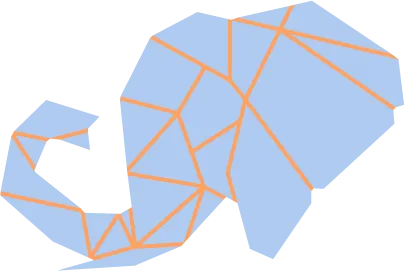The most common thing I hear when someone is going through IVF is, they ran our AMH and semen analysis and sent me my protocol and that’s it.
Many of you often wonder what else you can do to support your IVF cycle. IVF is a big deal. Often there’s been many steps leading up to it, and when you’re finally ready to start your cycle, you want to do everything you can to make sure you get the best possible outcomes.
Except, you’re not getting many directions on supplements - even though you read about all these supplements people are taking.
Except, you’re not given direction on nutrition - when intuitively, you know this plays a role; it’s common sense.
Except you’re wondering if there’s anything else that needs to be considered, to improve your IVF outcomes even further.
In reality, this is often not part of the conversation. At most, people are told to “take COQ10”, and honestly that’s just not enough.
I want your journey and experience to be different. I want you to go through your cycle with the confidence that all these aspects of your upcoming cycle have been screened for and accounted for. And that’s what we do here at Acubalance.
The journey can feel overwhelming, so I like to break it down into active phases of care.
Phase 1: Retrieval support
Here we focus all our attention on egg quality and sperm quality. This is where the Acubalance 100 days of preconception care or our Laser baby come into place. You can learn more about it here.
There are several evidence-based supplements that may improve egg quality and sperm quality, and having a full assessment can help us identify which of those supplements make the most sense for you.
Additionally, know that semen analysis doesn’t tell us much about sperm quality. But we do know, both egg and sperm quality play a factor in producing a healthy embryo. I highly encourage both factors (the egg producer and the sperm producer) to seek out active fertiltiy care.
Nutritional support is also tailored around egg and sperm quality - specifically around ensuring there is enough energy for your cells available, enough antioxidants to mop up oxidative stress, and enough detox support to ensure proper processing of inflammation.
In this phase, we’re also often running blood work for early detection of nutritional deficiencies, so we can actively optimize these parameters.
Finally, in this phase, we’re utilizing tools like cold laser therapy, acupuncture, and IV nutrient therapy because our focus is all about giving your eggs and sperm all the resources they need to reach their peak fertiltiy potential PRIOR to their retrieval.
Phase 2: Transfer support
Our care strategy shifts when we’ve reached the point of embryo transfer. Our focus here is all on your lining and support implantation. There are several factors that I’m considering.
First, are there risk factors here that need extra attention, such as a thyroid disorder, PCOS, endometriosis or history of pregnancy loss? Having a thorough assessment can help us tailor the treatment better for your specific case. This may also include more specific blood work that we want to be monitoring.
Nutritional considerations here are all about lining support - how can we ensure we’re getting the building blocks we need to build a strong lining, and support implantation and early pregnancy?
A newer area of fertility care and assessment is the reproductive microbiome. I talk a lot about this here. I think this is a really valuable area that needs to be considered prior to transfer. I like to include dietary adjustments and supplements that actively support your reproductive microbiome.
Supplements are also adjusted to focus more specifically on lining and implantation support. Here I’m thinking about blood flow and specific nutrients shown to improve lining.
Phase 3: Early pregnancy support.
When we get to a point of a positive pregnancy test - I like to shift gears into early pregnancy support. Here the focus is all on supporting the placenta and early embryo development.
At this point, you’re liking progesterone (vaginal and intramuscular) and maybe a few other things depending on your specific case.
Depending on your history, this may mean early blood work to look at things like the thyroid to ensure that it’s responding in the way we want. Sufficient thyroid levels are really important for early pregnancy and baby development.
We adjust supplements to support early pregnancy. We want to make sure there are nutrients present to with placental development. We also want to consider how you’re feeling - this period of time can come with some pretty dramatic changes for some people, such as nausea, fatigue, and headaches - these are all things we want to target.
Nutritional changes include supporting key building blocks for pregnancy, along with navigating difficulties you may be facing with early pregnancy symptoms.
Blood flow is incredibly important - new blood vessels are forming as the placenta develops. Acupuncture is an excellent tool to continue during early pregnancy and onward.
So is taking COQ10 enough?
As you can see, there’s a lot of thought, consideration, and strategy to developing your IVF or fertility treatment plan. Simply taking COQ10 may not take into account all the factors at play. Here at Acubalance, we create a step-by-step game-plan, that pivots with every point of your fertility journey.
If you’d like to learn more - schedule a discovery call!
In health,
Dr. Ashley Damm
Naturopathic Doctor - Vancouver, BC
Get started today
Dr. Ashley is accepting new patients, in-person and virtually across British Columbia.


